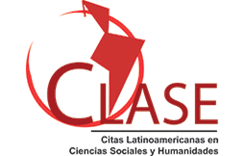Wine tourism and sustainable territorial development in Vale dos Vinhedos: an analysis of the different perceptions and conflicts of the territory
DOI:
https://doi.org/10.54399/rbgdr.v20i1.7143Keywords:
Community, Local development, Governance, ImpactsAbstract
Rural tourism has emerged as a tool capable of “reviving” and promoting rural areas, generating sufficient conditions to combat aspects such as poverty and rural exodus, through the generation of employment and income, appreciation of local products, among others. In this scenario, wine tourism also gains space, raised as a strategy to promote the territory and the wine sector. However, when not properly planned and coordinated, wine tourism can bring considerable negative impacts, especially to resident populations. Thus, the present work aimed to identify the role of wine tourism in the Sustainable Territorial Development of Vale dos Vinhedos, based on the analysis of territorial indicators and the perceptions of residents, entrepreneurs, and key actors in the territory. In view of this, the main contributions of wine tourism in the generation of socioeconomic benefits were observed, in the presence of its negative impacts, as well as the main conflicts manifested through the expansion of wine tourism practice in Vale dos Vinhedos.
Downloads
Published
How to Cite
Issue
Section
License
Copyright (c) 2024 Revista Brasileira de Gestão e Desenvolvimento Regional

This work is licensed under a Creative Commons Attribution-NonCommercial 4.0 International License.
Authors who have their papers accepted and published in the Brazilian Journal of Regional Management and Development must agree to the copyright policy CC BY https://creativecommons.org/licenses/by/4.0/.
If the article is accepted for publication, the copyright is automatically assigned to the Brazilian Journal of Regional Management and Development.

















